

Interchange was a year-long counseling training I developed and taught from 2003 to 2017. It was designed as an experiential and community-based learning environment, ranging over ten intensive weekends. While it offered a meta-framework for organizing all the many theories and techniques in the counseling world, it was not itself a particular modality. Rather, Interchange encouraged students to find their own ways of counseling.
I am working to make all the Interchange materials freely available on this site: my teaching outlines, guidelines for leading exercises, and videos of both lectures and counseling demonstrations. If you would like to contribute time (primarily video editing) or funds to this project, please send me a message below.
Below, I have included a couple overview videos about the Interchange project, and a basic overview of the ten weekends of the training. In the future, you will be able to click on each weekend to make your way through the course materials.

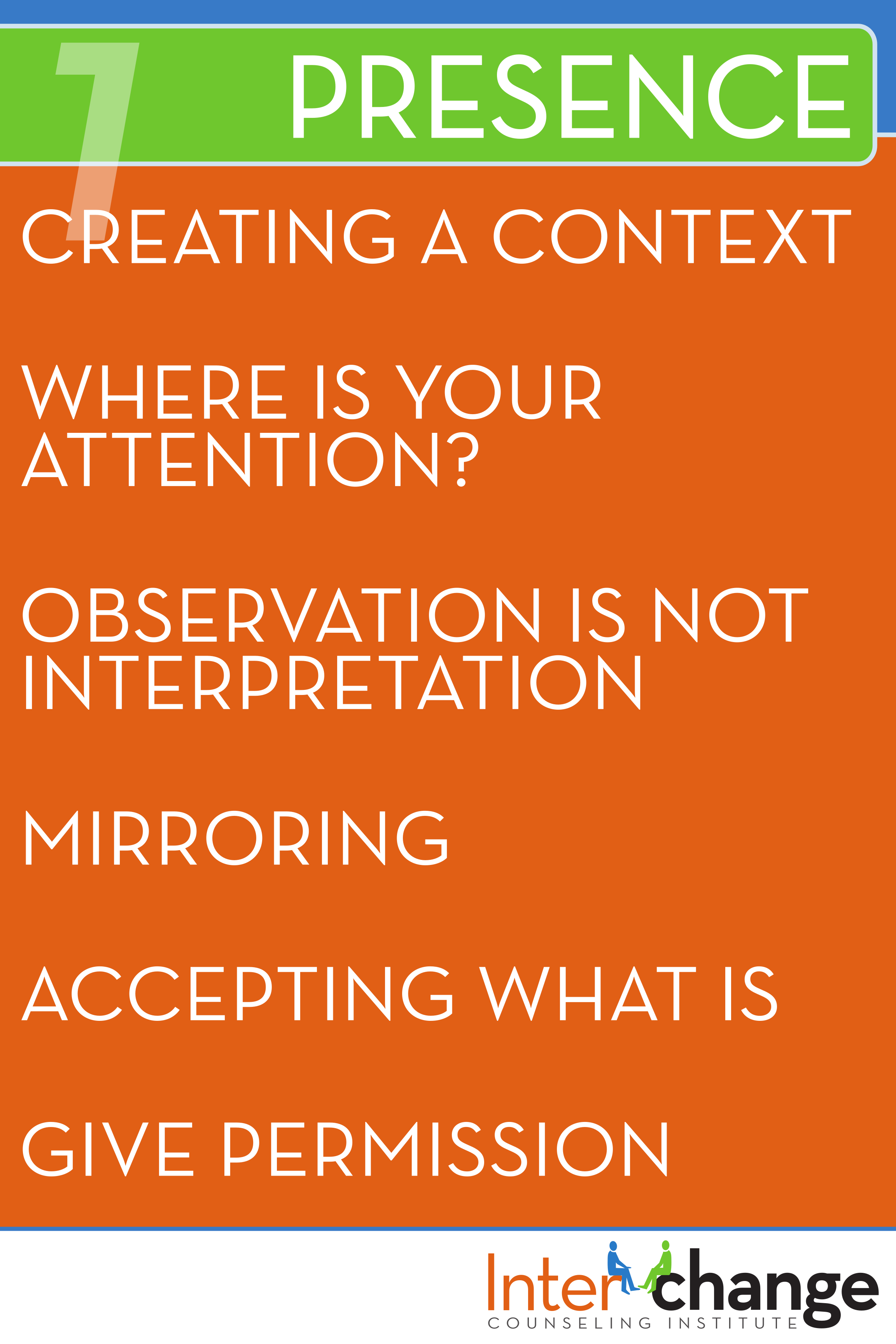
We will begin by getting to know each other, creating community, and setting intentions for the training. To help create context, we will examine the questions of what counseling is and what it's for. We will then establish being as the ground from which all counseling is done and from which any technique is applied.
Some time will be devoted to several "skills" related to being, including listening, mirroring, distinguishing observation from interpretation, paying attention, accepting what is, creating a container, and providing permission.
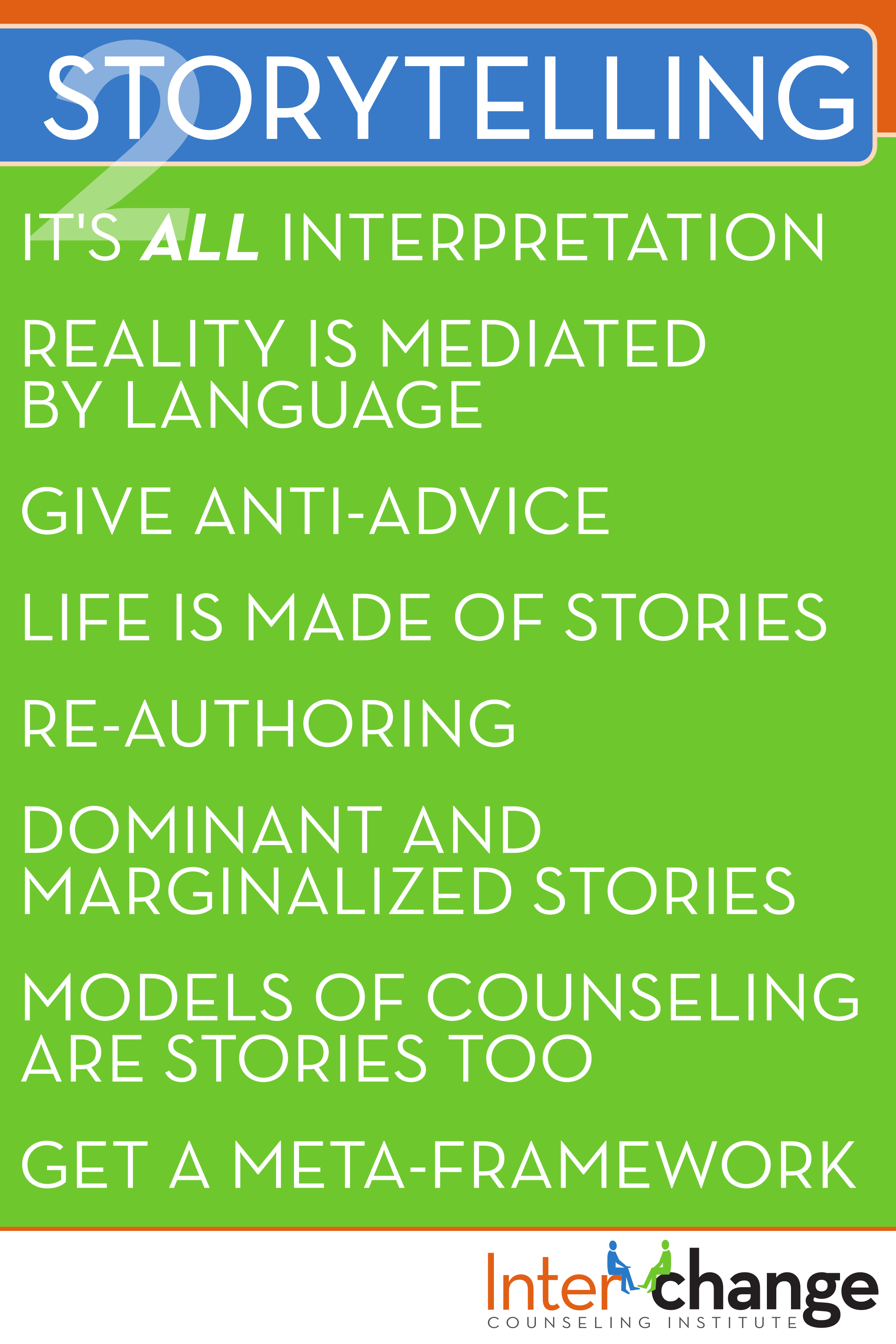
Who are you? What is your life for? We answer these questions, live our lives, and construct our identities through stories. As counselors, we are armed with theories, models, and frameworks for understanding how to create change. Each of these models is a story in itself, a story about the stories that make us who we are. In this weekend, we will tell an even wider story about the stories that counselors use to understand the stories that people tell about their lives and their struggles.
We will have an opportunity to tell our stories, to become better allies for each other by understanding how other people understand themselves, and to facilitate change by assisting each other in changing the nature of these stories. We will gain insight into the essential relationship between meaning and context, and we will become more comfortable with the paradoxes of being a counselor. On a practical level, we will learn how to generate empowering conversations, increase people's options for understanding their lives, and learn about the power of ideas.

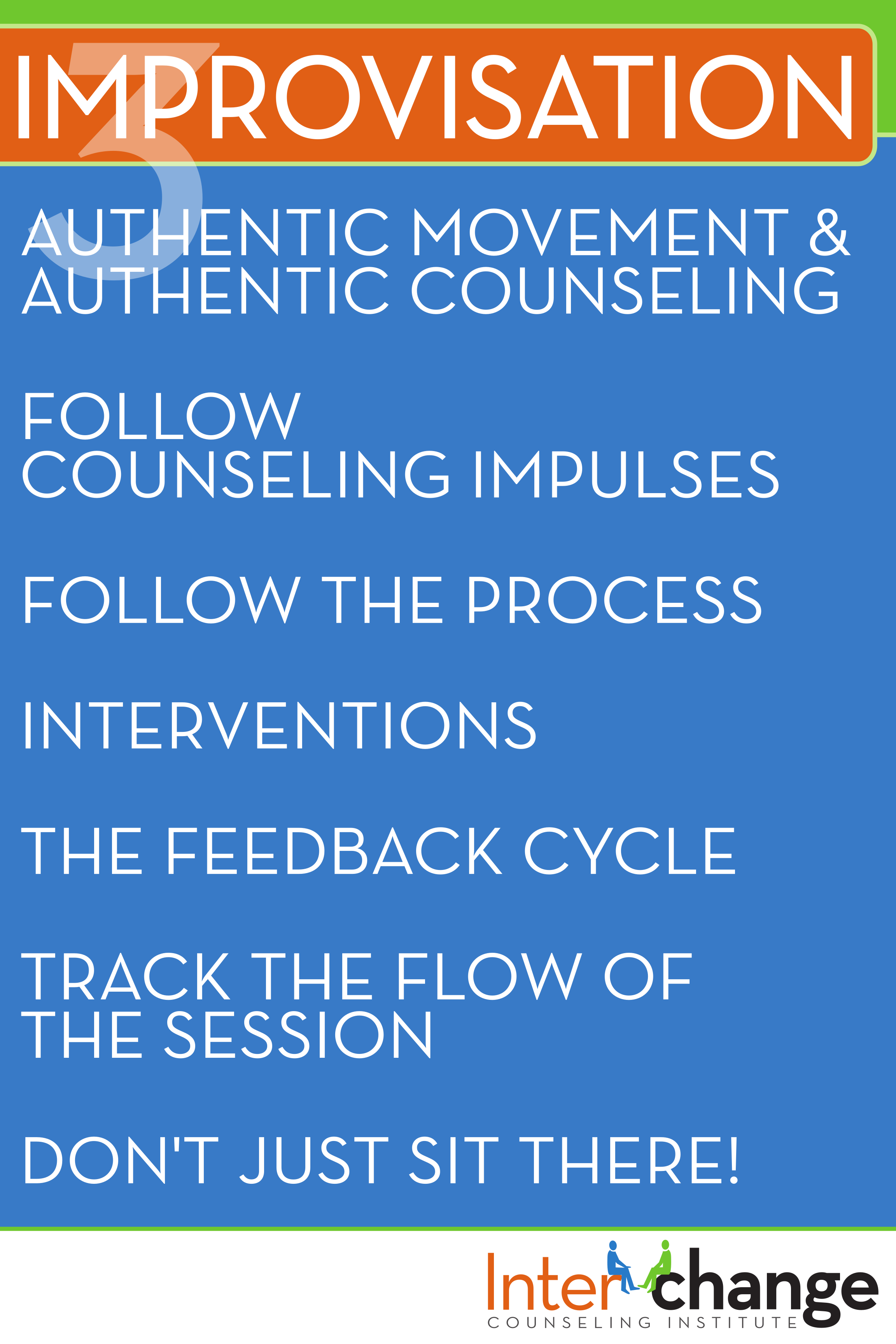
Considering counseling as an art form, we will practice improvisational skills given the ever-present question for the counselor, "What do I do now?". We will utilize a wide range of interventions: following the process, creative problem solving, asking directive questions, working with feelings, movement, and body sensations, mirroring, using humor, shifting contexts, using touch, etc. Improvisation is helped by having many tools and tricks (in this case, kinds of interventions) at your disposal.
But even without a substantial toolkit, paying attention and thinking flexibly (which are both learnable skills), can make you an accomplished improviser in the medium of counseling. This will be our goal for the weekend. In addition, we will practice tracking the flow of a session, recognizing feedback, backtracking, and rerouting as we go.

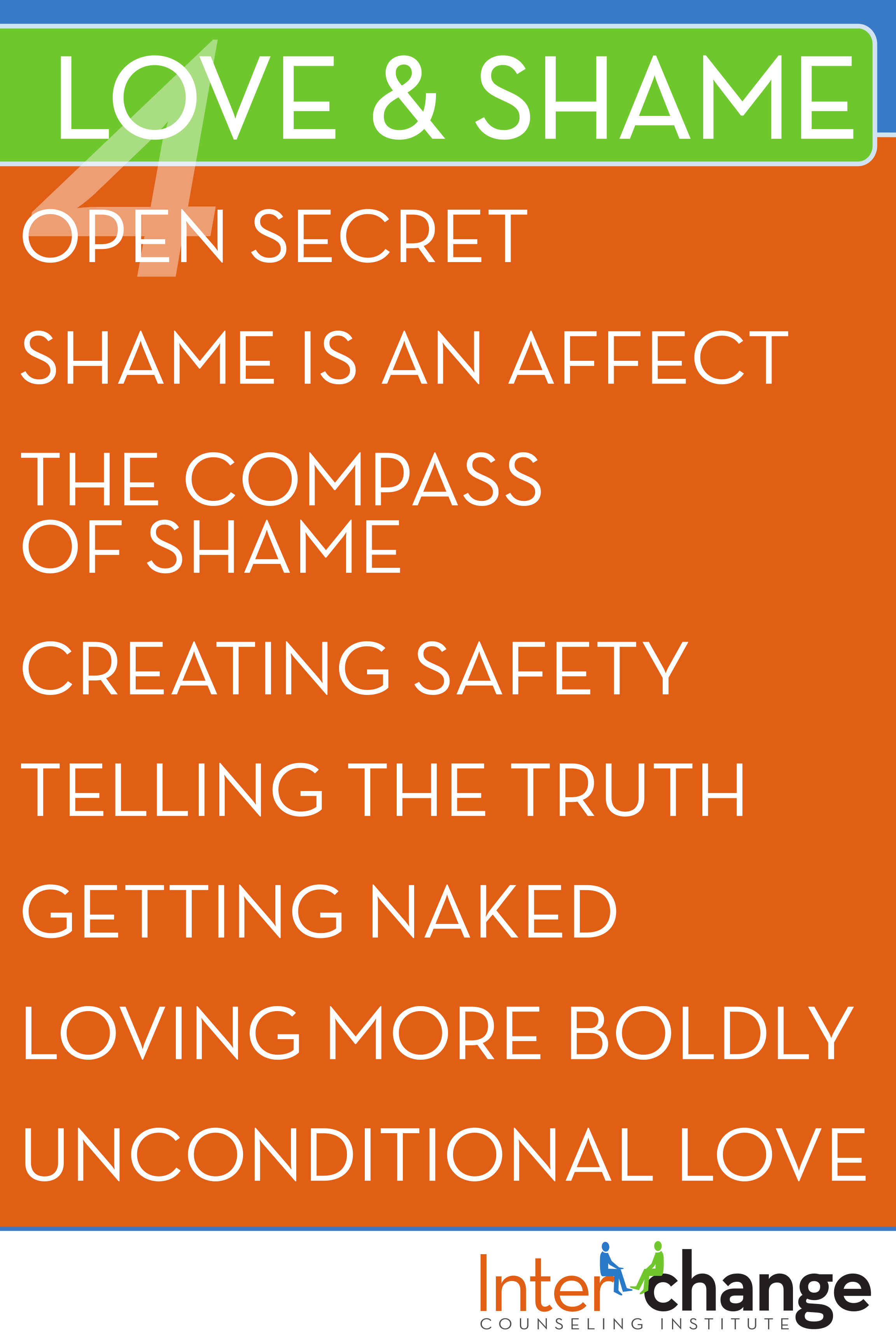
The fundamental human experience of shame has long been "the ignored emotion." Ashamed of shame itself, we tend not to examine or discuss it. As counselors, shame can prevent us from being authentic with our clients and from allowing ourselves to fully love and be loved by them. Understanding shame (our own and others') will help us to create safety for our clients (one of our most important jobs) and remove obstacles to their loving fully. We will practice coming from a place of nakedness, honesty, and transparency which is only possible when we understand shame. We will examine obstacles to love and work with sources of "resistance" in the counseling process.

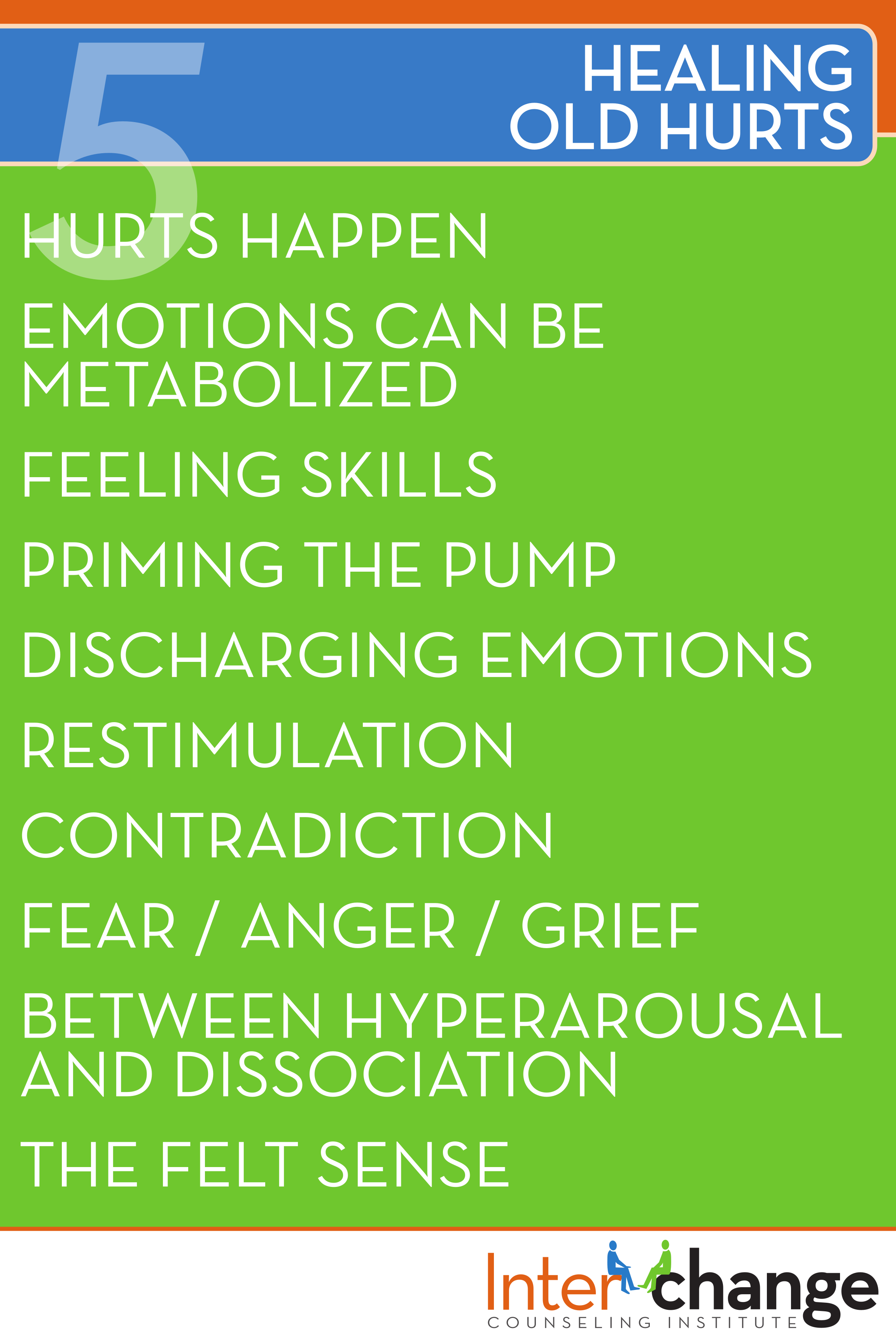
Hurts happen! Painful experiences are a part of being alive. In contrast, the ongoing suffering that can follow painful experiences is not a necessary part of life. As counselors, we need to be able to be with people with their pain, and to help them learn to metabolize it by releasing, expressing, containing, diffusing, or redirecting it. We will learn some powerful approaches to helping people heal from hurts that occurred in the past by giving them access to resources which they have now but did not have when they were being hurt.
In addition to working with shock trauma and more minor trauma-like incidents, we will do work on grief, fear, and other strong emotions. We will also learn to untangle the complexities of "suffering" beyond basic emotion, such as what occurs when we experience jealousy, guilt, or despair.

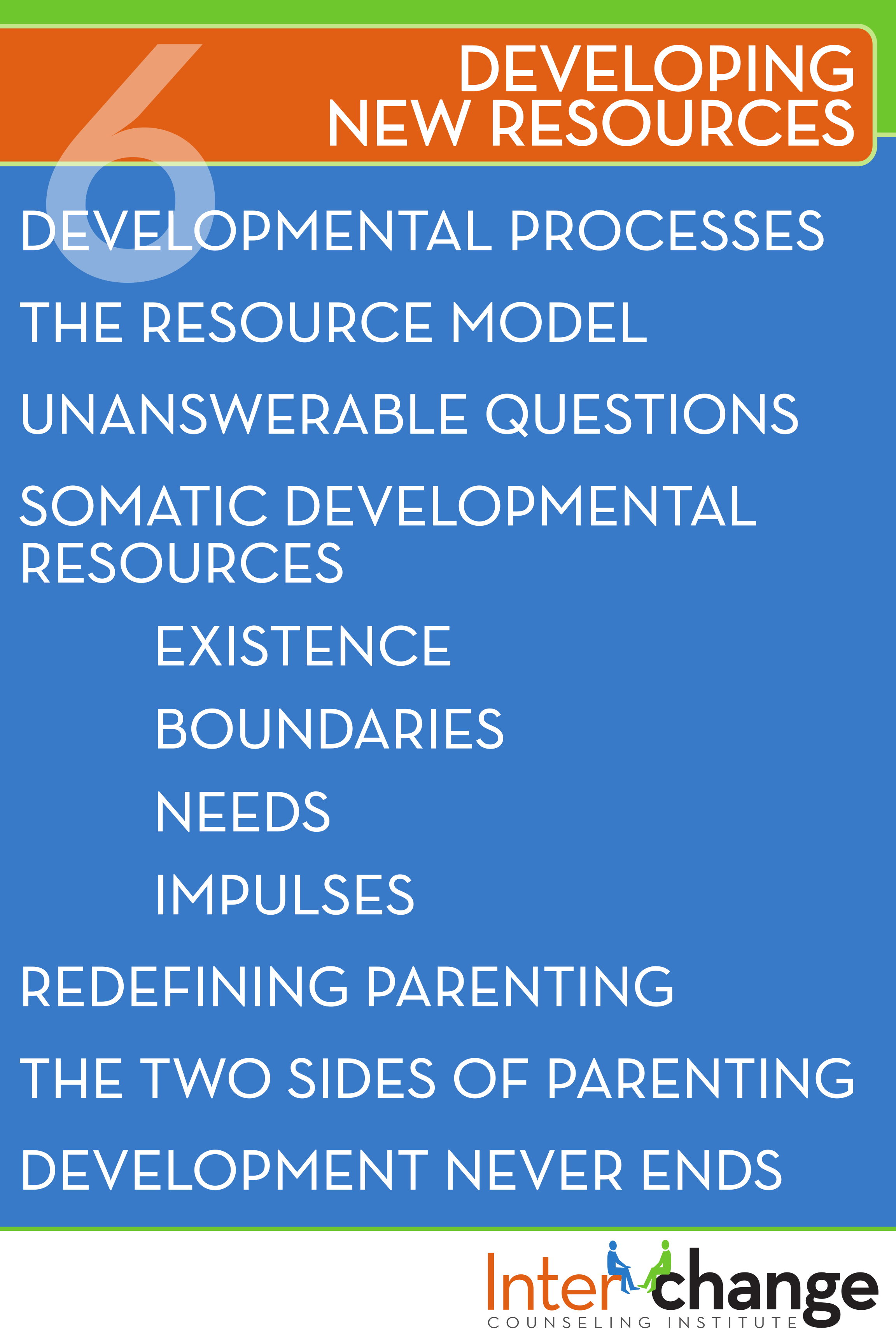
Most of the capabilities that we now possess and take for granted were acquired through long, persistent effort when we were younger. Alongside the abilities we now possess, we may not recognize the capacities and resources we are still missing, never having successfully learned them. And even when we have all the basic capacities of a "fully functioning adult," there are yet further frontiers in our ongoing growth and development.
This weekend will be devoted to understanding the many processes involved in learning and development, and sorting out those which lead us to become more flexible from those which leave us less flexible. We will learn how to recognize missing resources in our clients and how then to help them gain those resources through teaching, skill-building, and reparenting.

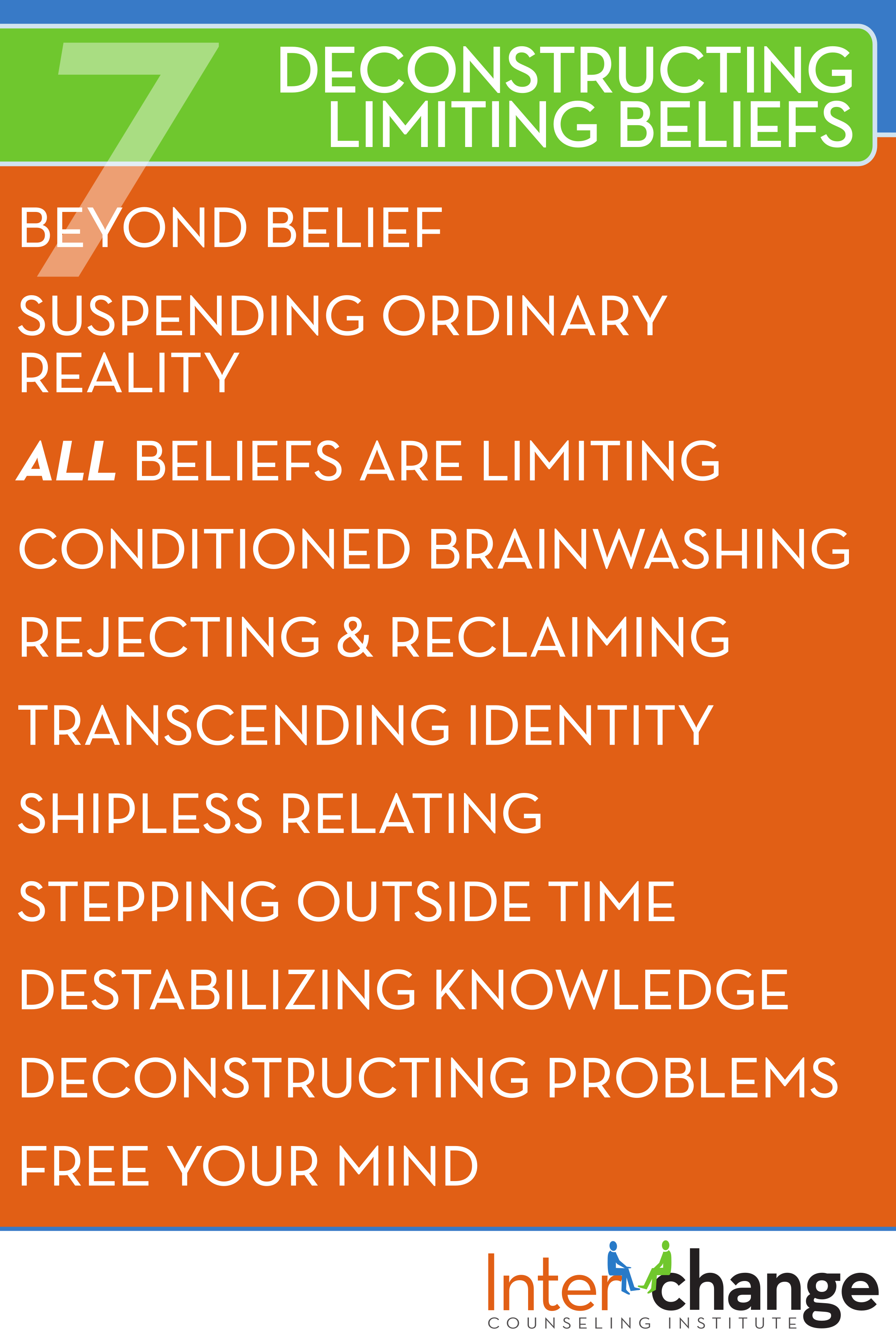
Through mundane and systematic processes of reward, punishment, repetition, and reinforcement, we have, over the course of our lives, been conditioned. We are conditioned to make assumptions about our natures and about our limitations which we don't know are assumptions. Aspects of our world-views which are invisible to us can be illuminated through processes of witnessing and inquiry. Because counseling is about creating change in our lives, we need to make visible the unconscious routines and choices which compose our days. Ultimately this means altering the content of our days, our activities, our relationship to the external world.
An interesting question to consider as we decondition ourselves: What would you be like if you were free to be your whole, true self? During this weekend, we will deconstruct some of our unconscious assumptions and then take a crack at defining our authentic selves beyond our conditioning.

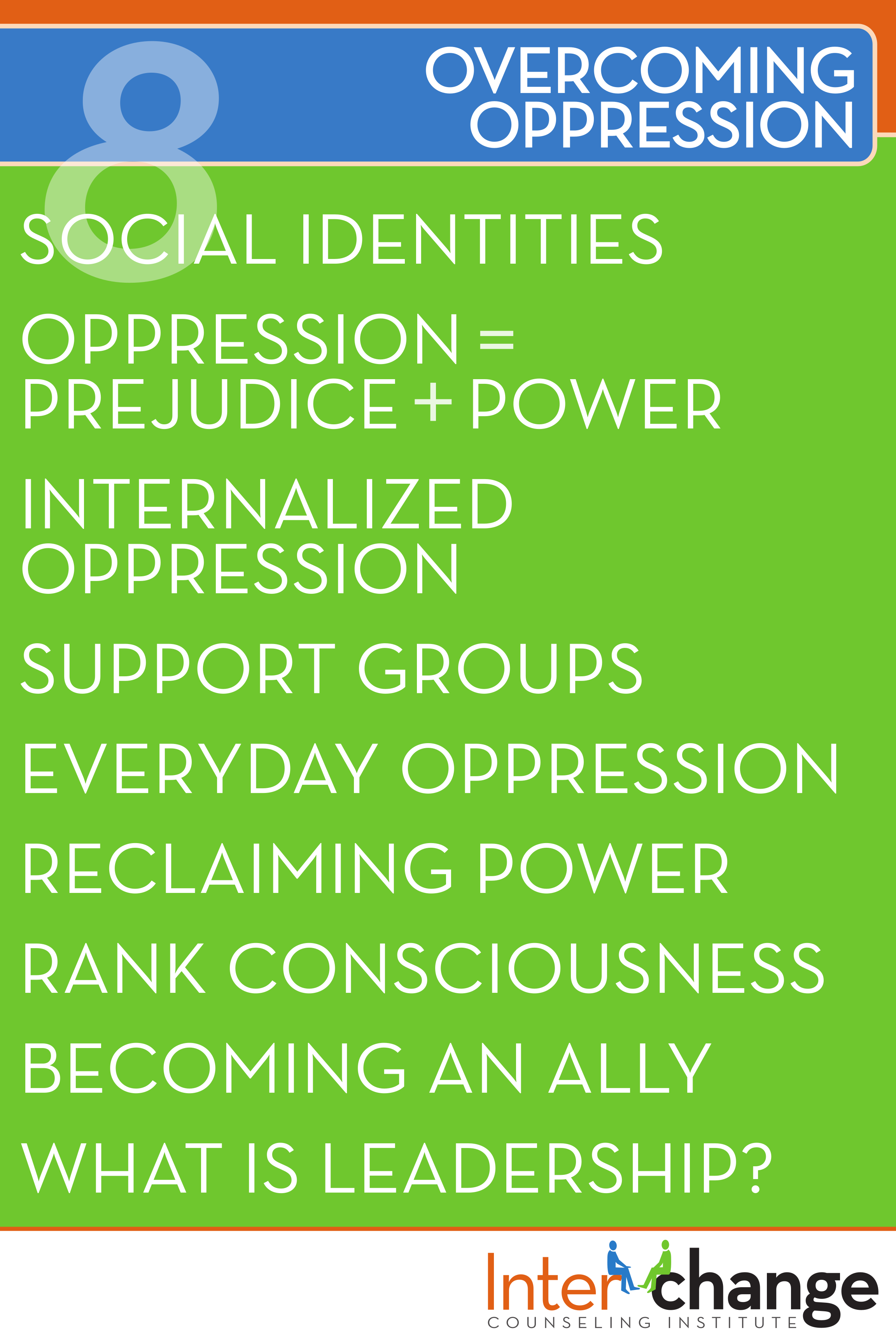
We have all grown up within social structures that divide us on the basis of gender, race, ethnicity, age, economic class, sexual orientation, and any other discernable difference between people. In order to maintain these divisions, and the inequality that goes with them, the oppressive societies in which we live have evolved mechanisms for robbing people of their sense of power, and for keeping groups of people segregated from one another. This weekend, we will begin by claiming membership within our social identity groups and looking at the ways we have learned to occupy the roles of victim and/or oppressor within the oppressions that accompany each group.
We then have two primary tasks facing us. The first is to reclaim the power we have lost access to, power that we need both to live the lives we most want and to create change in our communities and institutions. The second is to learn how to become effective allies for members of our own groups, people in groups that are the targets of oppression, and people in groups that are the agents of oppression. Finally, we will touch upon the construction of "mental illness." and the relevance of mental health oppression to our work as counselors.

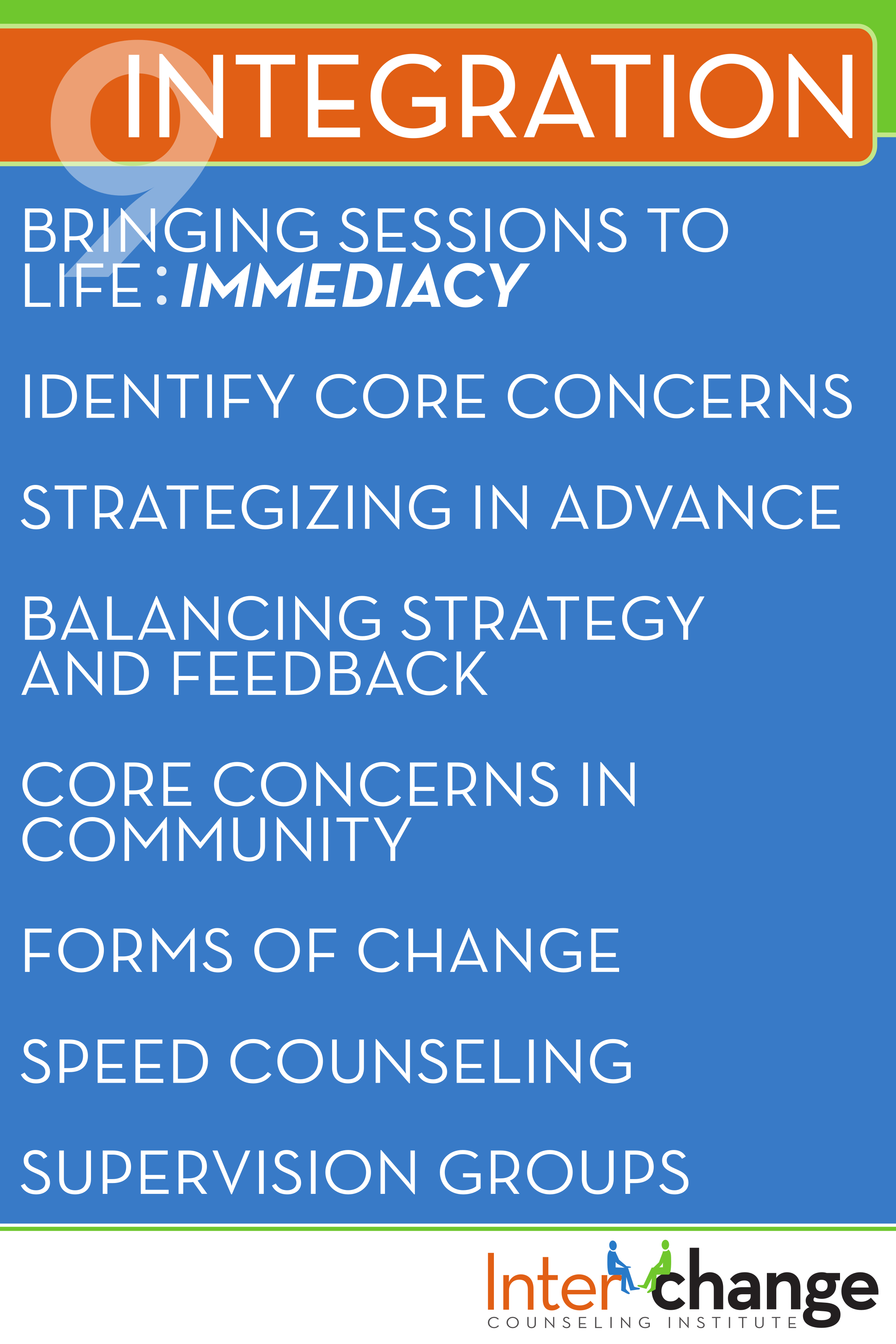
Rather than bring any new content to the table, this weekend will be concerned with integrating what we have already done. We will consider how to identify the core concerns to address as a client. We will then practice strategizing about how to work with someone given what we know about the issue they have identified and what we know about them as an individual. Keeping thinking as counselors, and eventually balancing strategic thinking with responding to in-the-moment feedback, will be our goal for the weekend.

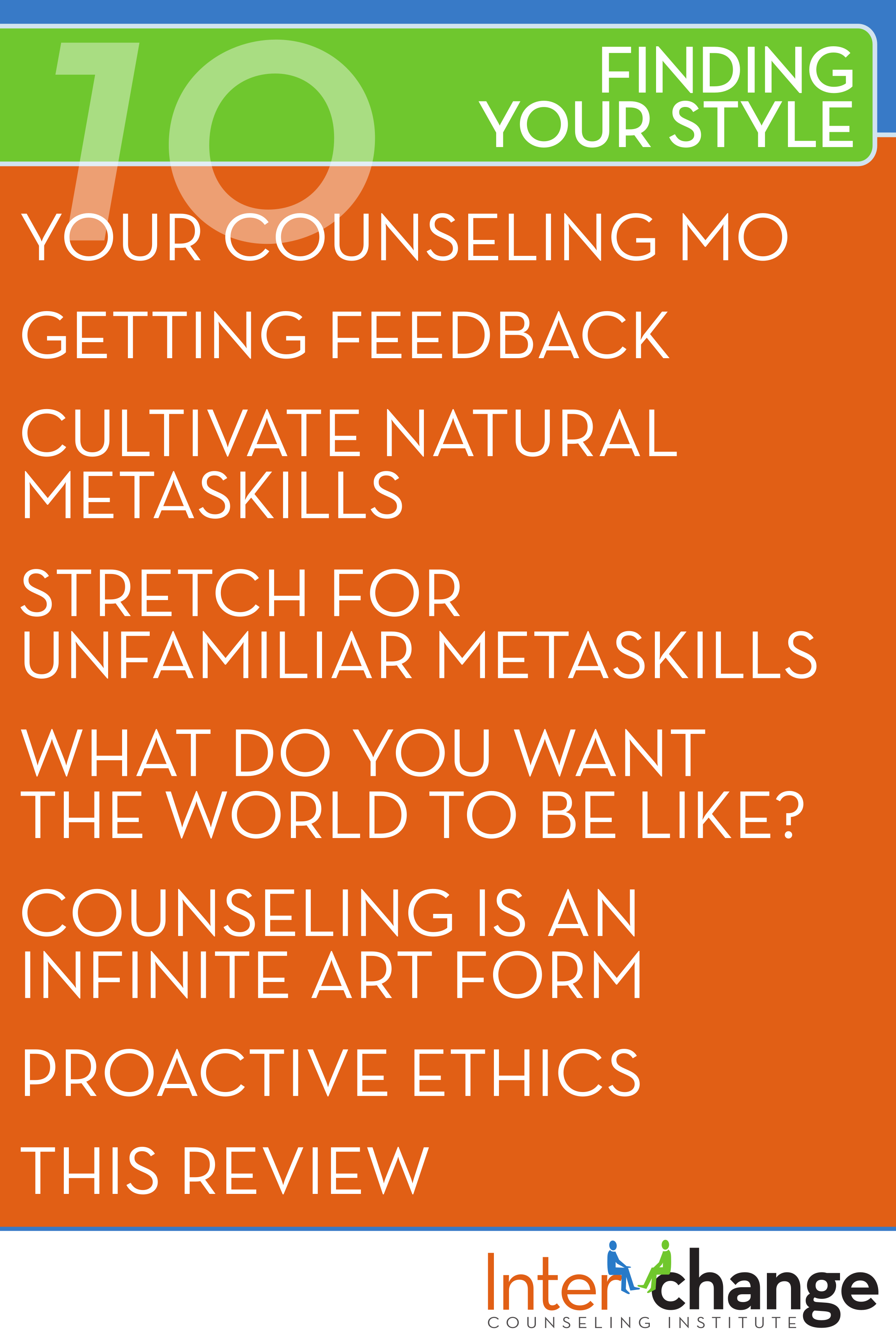
What distinguishes you as a counselor? Now that we have been working together for the better part of a year, you will know some things about who you are as a counselor. We will use this time to recognize our unique characteristics as counselors and the approaches and perspectives we use that make our counseling effective. In addition to clarifying what "metaskills" we naturally possess, we will identify those which have required conscious effort on our parts to cultivate, and those which are as yet unexplored.
This weekend will allow us to bring together everything that we've learned throughout the course of our year together, and to discover and decide the next steps in our journeys as counselors.